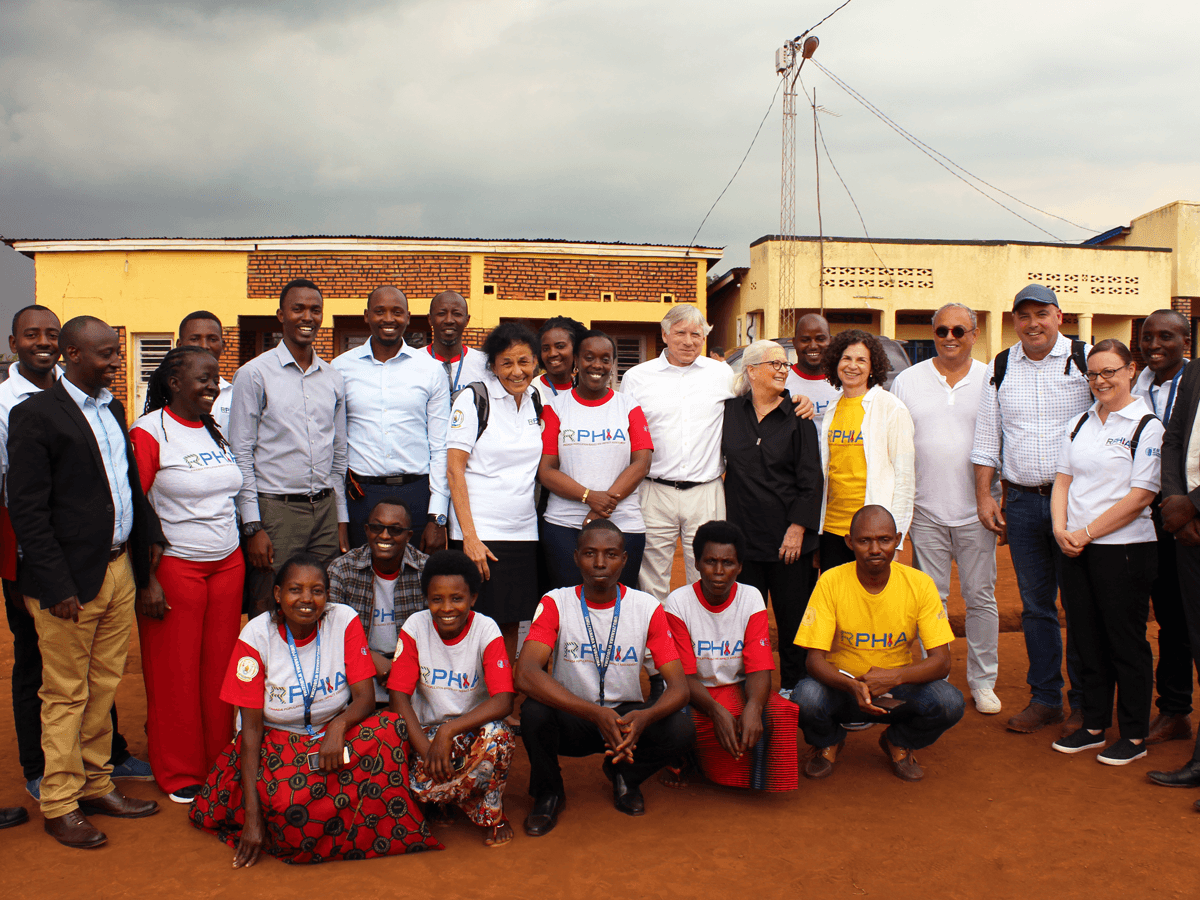As Columbia University President Lee C. Bollinger steps down from his position on June 30, he will leave behind a remarkable legacy – a uniquely global university, committed to advancing knowledge and to pursuing innovative, enduring solutions to the most pressing global challenges.
As an organization dedicated to public health on a global scale, ICAP found – from its earliest days – a true champion in Bollinger. In his inaugural address in 2002, Bollinger signaled his global vision, calling for Columbia to engage more deeply with the world. A year later, he acted on that call by establishing the World Leaders Forum, which has brought major world figures to the university every fall during the UN General Assembly to connect and inspire the Columbia community. That same year, 2003, ICAP was launched, connecting directly with Bollinger’s vision of the power of a university to go beyond its walls to share expertise, build international and intersectoral connections, and put knowledge into action to improve people’s lives.
“Among President Bollinger’s many contributions to the growth of Columbia has been his firmly held belief that a university needs to be more,” said Wafaa El-Sadr, founder and global director of ICAP. “In ways that perhaps none of his contemporaries did, he saw a potential for the university to be an instrument of influential positive change in the world.”
Bollinger’s global vision found its most resonant articulation in his call for Columbia, and for universities in general, to pursue a “Fourth Purpose” – a commitment to advancing human welfare through active and sustained engagement with people and organizations to enact meaningful change. “This mission,” he commented, “both complements and interacts positively with the three more traditionally articulated purposes of universities—research, education and service, and already exists in several forms and venues within the academy: in fields of medicine and public health, where we see it most vividly realized.”
As ICAP evolved and expanded during its two-decade trajectory, Lee Bollinger’s guiding hand was ever present. In 2005, he visited ICAP’s nascent programs on the ground in Mozambique where he toured hospitals and health facilities in the company of Allan Rosenfield, then dean of the Mailman School of Public Health, where he saw firsthand the damage that the HIV/AIDS epidemic had wrought in sub-Saharan Africa, but also the hope and beginnings of progress that was taking root, thanks, indeed, to the idea of global engagement that he was promoting in his role as leader of Columbia.
In 2019, Bollinger again traveled to Africa to visit ICAP’s programs in Kenya and Rwanda, where he was able to see the great strides that had been made in addressing the HIV crisis and to see how Columbia had played a significant role in the global response to the epidemic there. A highlight of the visit was a chance to observe the work of the Population-based HIV Impact Assessment (PHIA) project – an initiative funded by the President’s Emergency Plan for AIDS Relief (PEPFAR) through the Centers for Disease Control and Prevention (CDC) and implemented by ICAP in countries throughout the continent. During that visit, he experienced first-hand what it takes to conduct such house-to-house surveys, to gain the trust of the population, and to build the partnerships to accomplish this enormous task.

Lee Bollinger and his wife Jean Magnano Bollinger pay tribute to those who perished in the Rwandan genocide during an ICAP-sponsored trip to Kigali, Rwanda in 2019
“It was really wonderful to have President Bollinger come out to the field with us on PHIA household visits and see people proudly welcoming us into their very modest homes,” said Jessica Justman, ICAP’s senior technical director who was the principal investigator of the PHIA surveys at the time.
“One of the highest aspirations of Columbia University is to put knowledge in the service of humanity—enabling people around the world to live longer and better lives,” said Bollinger during the visit. “By harnessing solid scientific evidence to improve health, it is clear that the PHIA project is bringing a new level of precision to the HIV response.”
During that trip, Bollinger also visited the Kigali Genocide Memorial, which commemorates the 1994 Rwandan genocide. There, a deeply moved Bollinger stated, “All of us here from Columbia University are shaken of what we have seen; we want to express our hope that what happened will never happen again.”
Bollinger’s commitment to the idea of a “global university” has continued through the years. Last year, his creation of Columbia Global, a landmark effort to bring together the university’s major global initiatives under one umbrella, sealed his legacy as a leader who opened Columbia’s gates to the world.
“It’s difficult to overstate the transformational influence Lee Bollinger has had on this great institution,” said El-Sadr. “His vision of a globally engaged university has not only injected a vibrancy and vitality into Columbia year after year, but, as we have seen, it has made a real-world difference in millions of lives across the globe.”
About ICAP
A major global health organization that has been improving public health in countries around the world for two decades, ICAP works to transform the health of populations through innovation, science, and global collaboration. Based at Columbia Mailman School of Public Health, ICAP has projects in more than 40 countries, working side-by-side with ministries of health and local governmental, non-governmental, academic, and community partners to confront some of the world’s greatest health challenges. Through evidence-informed programs, meaningful research, tailored technical assistance, effective training and education programs, and rigorous surveillance to measure and evaluate the impact of public health interventions, ICAP aims to realize a global vision of healthy people, empowered communities, and thriving societies. Online at icap.columbia.edu








